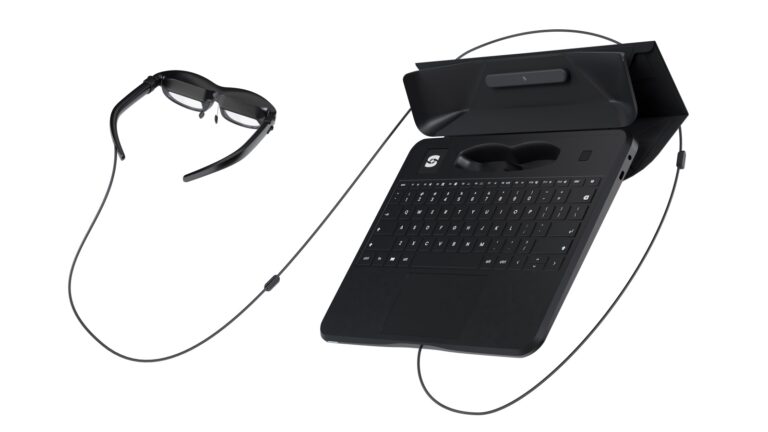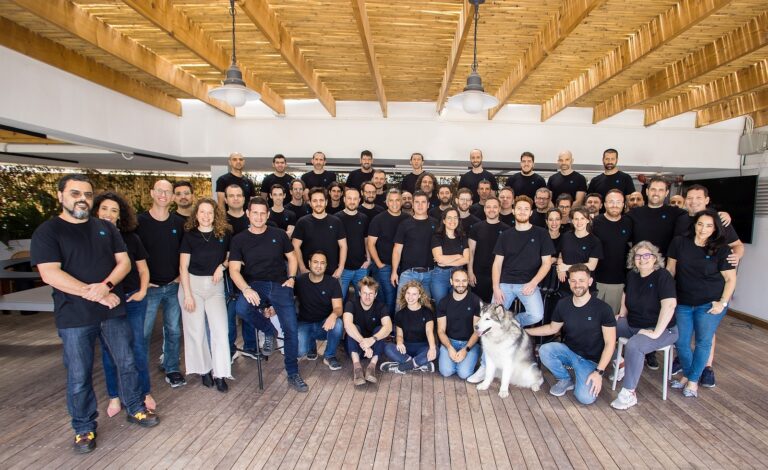A screenless laptop is now available to the public, and thanks to augmented reality, it’s fully functional.
Designed by Tel Aviv-based startup Sightful, Spacetop G1 allows users to switch between 12 virtual screens using special glasses.
The company said the machine will start shipping in October and will cost $1,900, with discounts available to customers who pay upfront by June 6th.
The Spacetop G1 looks like a standard 13-inch laptop keyboard, except for its 13-inch screen. Users can view a gigantic 100-inch virtual display through a pair of augmented reality (AR) glasses, providing a large, completely private workspace.
The keyboard has two additional buttons to control the user’s view of multiple screens, including switching between multiple screens, resizing and repositioning the screens, and zooming in and out.

“Instead of stacking your windows, apps and documents, you can now layout them wherever is most convenient for you,” Sightful said in announcing the launch.
“By adding on-board AI capabilities, a workspace for AI tools, physical contextual awareness and more, Spacetop G1 also lets you harness AI in ways no other device can.”
Sightful will launch an early access promotion for Spacetop in May 2023, inviting the first 1,000 early adopters in the US to reserve the machine and provide feedback to improve both the hardware and software of the first full access version.
The company was founded in 2020 by Berliner and COO Tomer Kahan, both spatial computing veterans who worked at AR technology company Magic Leap, a US company that develops head-mounted augmented reality displays.
Berliner was a co-founder of PrimeSense, which was acquired by Apple in 2013, and Kahan was an executive at N-trig, which Microsoft acquired in 2015.

At Sightful, the duo employs over 60 employees with expertise in product management, UX/UI, core software, cloud, applications, marketing, computer vision, systems, and design to reinvent the laptop experience.
Berliner spoke at length about the importance of developing an augmented reality PC in an interview with Israel21c last May.
“Two worlds are at the crossroads. Laptops are central to our daily work, but the technology has not evolved to keep up with modern ideas of work from anywhere, privacy and the road warrior mentality,” he said.
“Augmented reality, on the other hand, is full of potential and promise but has yet to find everyday use cases. We’re at the perfect time for a major paradigm shift in the devices we all know and love.”


